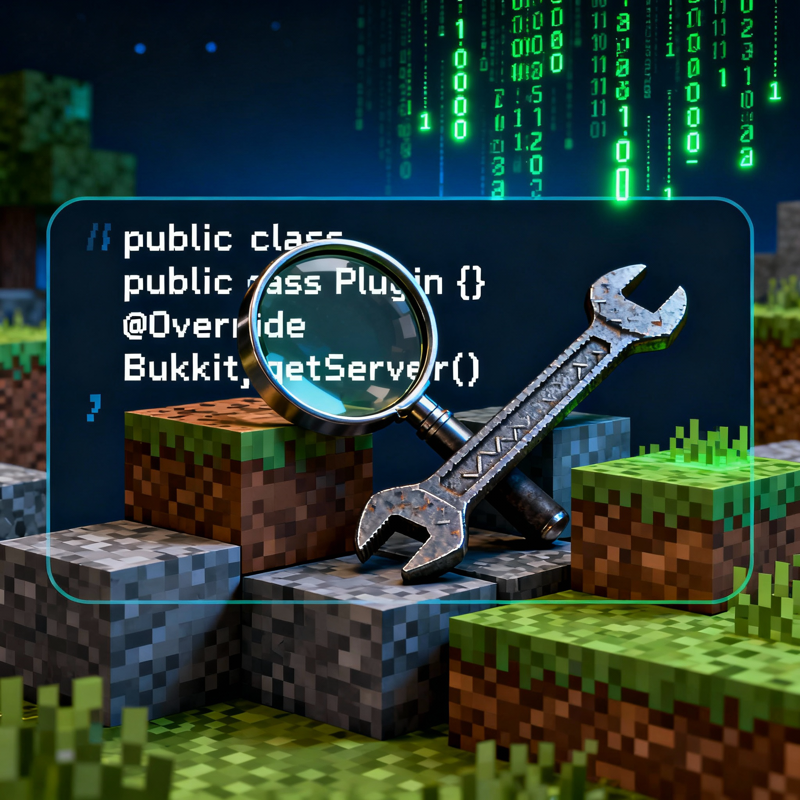
Minecraft Plugin Reverse Engineering
How to Decompile and Recompile a Minecraft Plugin: A Developer’s Guide #
Minecraft plugins are distributed as .jar files, which are essentially compressed archives containing compiled Java bytecode. Sometimes you may need to modify an existing plugin for debugging, learning purposes, or making custom changes. This guide will walk you through the process of decompiling a Minecraft plugin, making modifications, and recompiling it back into a working .jar file.
